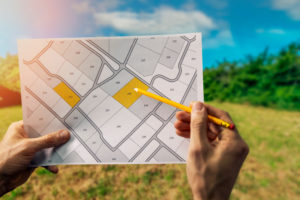Table of Contents
Experiencing anxiety after a car accident is not uncommon and such instances can intensely affect your life. Recognizing that psychological effects like these can be as substantial as physical injuries is crucial while assessing the overall impacts of accidents endured.
If you’re grappling with post-accident anxiety symptoms, it’s essential to remember that legal avenues exist to help you seek recourse. If you need help with a car accident, don’t hesitate to contact Gomez Trial Attorneys to schedule a consultation.
Common Causes of Car Accidents
Several common causes can contribute to car accidents. These include but are not limited to:
- Distracted Driving
- Speeding
- Drunk Driving
- Reckless Driving
- Ignoring Traffic Laws
- Weather Conditions
Understanding the common causes behind car accidents equips us all with the knowledge needed to remain vigilant and take preventative measures, thereby considerably reducing the risk of injuries.
Evidence Needed To Prove Anxiety After Car Accident
Proving anxiety after a car accident revolves around presenting sufficient evidence that substantiates the emotional distress you’re experiencing. Here’s what is typically required:
Medical Documentation of Anxiety From Car Accident: Detailed records like a diagnosis from a mental health professional documenting your condition, treatment plans, and prognosis can help prove the existence of anxiety after an accident.
Testimony from Witnesses: Friends, family members, or co-workers could attest to any changes they’ve observed in your behavior pre and post-accident.
Personal Diary/Statements: Detailed logs related to symptoms you’ve experienced can provide an insightful narrative linking these developments back to the accident. This can include anxiety symptoms and other consequences, like loss of consortium.
Claiming Compensation for Anxiety When No Physical Injury Occurred
While it’s common to claim compensation for anxiety following a physical injury through personal injury lawsuits, seeking damages when there is no visible physical harm may require an alternate legal course.
Under such circumstances, you might need to file what’s referred to as a “negligent infliction of emotional distress” or NIED claim.
How Is Compensation for Anxiety and Other Non-Economic Damages Calculated?
Non-economic damages represent the intangible losses a plaintiff has suffered, and determining their monetary value is a bit more complex compared to economic damages. Here are two common ways they’re calculated:
Multiplier Method
Using this method, the total amount of your economic damages (like medical bills or lost wages) gets multiplied by a number typically ranging from 1.5 to 5 depending on the severity of your injuries, with 5 being the most severe.
Let’s say you suffered an injury deemed moderately severe – a back injury that leaves you out of work for a while – your multiplier might be a 3. You would then multiply this number by your economic damages.
This means if you had $50,000 in medical expenses, you would multiply this by 3 for a result of $150,000. This would be your non-economic damages. So, in total, you would be entitled to $200,000.
Per Diem Method
In the “per diem” (Latin for ‘per day’) method, a certain amount of money is assigned to each day from the date of your accident until you achieve maximum recovery.
The rationale behind this approach is that suffering has a value that can be determined for each day. This is usually based on the amount you would have made if you were able to work.
For example, you may be entitled to $200 per day. If you don’t reach maximum recovery for 60 days, you will likely get $12,000 in non-economic damages.
Due to the subjective nature of non-economic damages, insurance companies often challenge these claims and attempt to minimize what they pay out. But remember, anxiety and emotional distress from a car accident are real consequences that can affect your life significantly.
An experienced car accident attorney is key here. Skilled counsel will understand how to present a convincing claim showcasing why you’re entitled to such compensation.
Economic Damages That Can Be Recovered
Economic damages reflect the quantifiable monetary losses incurred due to an accident. These generally include:
Medical Bills: This covers costs for any necessary medical care resulting from your injury, including hospital stays, surgeries, medications, and physical therapy.
Lost Wages and Earnings: If your injury causes you to miss work — or diminishes your earning capacity in the future— these also qualify as economic damages.
Property Damage: This refers to reimbursement needed for car repairs or replacements if it was damaged during the incident.
Other Out-of-Pocket Expenses: These could include miscellaneous costs you incurred due to the accident, such as expenses for hiring help for personal tasks you’re unable to accomplish due to your injury.
Funeral Costs: In wrongful death cases, funeral and burial expenses are also considered financial damages recoverable by surviving family members.
Each case is different, and the exact type of damages recovered will vary.
FAQs
How long does anxiety last after a car accident?
Experiencing anxiety after a car accident is quite common, and it can take varying durations to resolve based on several factors, like individual resilience, severity of the incident, and level of support system and treatment after the accident.
The severity of the accident itself plays one of the most significant parts in this timeline. More serious accidents—those involving severe injuries or fatalities of others involved—can trigger post-traumatic stress disorder (PTSD), and not just generalized anxiety. Symptoms of PTSD can last for months, even years if left untreated, significantly impacting quality and enjoyability of life.
A strong support system, including friends, family members, or counselors, could make recovery time shorter as they can assist in mitigating any potential triggers associated with the trauma.
Each person’s recovery journey is unique; individual timelines should, therefore be considered fluid, with not everyone’s experience mirroring another’s exactly.
Is it common to have anxiety after a car accident?
Yes, it is quite common for individuals to experience anxiety following a car accident. Car accidents are traumatic events and can elicit strong emotional responses in their aftermath.
Experiencing a sudden, unexpected event such as an automobile collision can shock your system and leave you feeling rattled or on edge. It’s only natural that this might cause anxious feelings when recalling the incident or while related triggers sneak into life.
For many people, these feelings of unease may subside organically with time as they come to terms with what happened.
However, others might develop persistent anxiety symptoms lasting weeks, even months post-accident; situations like driving or even being near vehicles could invoke serious distress.
Can you get PTSD from a minor car accident?
Yes, it’s possible to develop post-traumatic stress disorder even after a minor car accident. PTSD isn’t just linked to the severity of an event, but also how someone emotionally processes that event.
While physically unharmed individuals might seemingly walk away ‘unscathed’ from these scenarios, the mind could still have a hard time dealing with what occurred.
Certain individuals may be more at risk of developing PTSD following a minor car accident due to attributes like pre-existing mental health conditions, past traumatic experiences, or lack of sufficient support systems to cope with trauma.
What are the signs of PTSD from a car accident?
Post-traumatic stress disorder can manifest in diverse ways, varying from person to person. However, there are several common signs that could imply someone is struggling with this condition after a car accident:
Re-experiencing the Trauma: Regular flashbacks or nightmares where the traumatic event gets vividly relived is a sign of PTSD.
Avoidance and Emotional Numbing: Actively avoiding anything — people, places, or things — that remind the individual of the traumatic incident, or engaging in substance use to avoid feelings can be a sign of PTSD.
Hyperarousal: Feeling constantly on edge, being overly alert or jumpy, and having difficulty sleeping and concentrating is another sign.
Panic Attacks: It’s also a common aspect of PTSD to suffer from a panic attack after a car accident.
If these signs persist for more than a month following the traumatic event, professional consultation should be immediately sought, as this could represent the onset of PTSD.
How do you overcome anxiety after a car accident?
Overcoming anxiety after a car accident is a process that requires time and the use of various strategies. Here are some steps you might consider:
Seek Therapy: Working with a professional therapist or counselor trained in trauma can provide you with constructive ways to cope with your anxiety. Cognitive-behavioral therapy (CBT), for instance, is often very effective at helping individuals understand their feelings, identify triggers, and manage responses to those triggers.
Mindfulness/Meditation Practices: These programs encourage relaxation techniques centered around breathing exercises, grounding techniques, or guided visualizations which could reduce instances of elevated distress after the event.
Gradual Exposure to Driving: Once it’s safe to do so, gradually returning back to driving can be helpful. Start with short drives around your neighborhood during quiet times and steadily increase distance and traffic exposure over time.
Physical Activity: Regular exercise can be therapeutic for managing stress levels – this could bring about chemical changes in the brain that promote a positive mood, helping with anxiety.
Support Networks: Leaning on supportive family members or friends for emotional support and openly expressing your feelings surrounding the trauma might help ease anxiety. Joining a local support group dealing specifically with accident anxieties may also prove useful by allowing you to forge connections with others who are having similar experiences.
Dealing with anxiety following a car accident is a personal journey that requires patience and adaptability.
Can you sue for emotional distress from a car accident?
Yes, you absolutely can sue for emotional distress from a car accident. This is often referred to as a pain and suffering claim in personal injury cases. However, it’s important to note that such claims aren’t always straightforward.
This type of compensation revolves around the mental anguish one has suffered from an incident or injury due to someone else’s negligence — this includes things such as anxiety, depression, or even PTSD.
Does car insurance cover emotional distress?
Yes, sometimes car insurance does cover emotional distress. However, it’s essential to remember that obtaining compensation for these kinds of intangible losses requires substantial evidence showcasing why you’re entitled to this type of compensation.
Contact Gomez Trial Attorneys for Help With Your Anxiety Claim
If you’re struggling with anxiety-related symptoms following a car crash, do not hesitate to contact a skilled attorney who can guide you through the complex legal process. If you’re facing such a situation, don’t hesitate to reach out; Gomez Trial Attorneys is here for you. Contact us today for a free consultation by calling 619-237-3490 or by contacting us online







